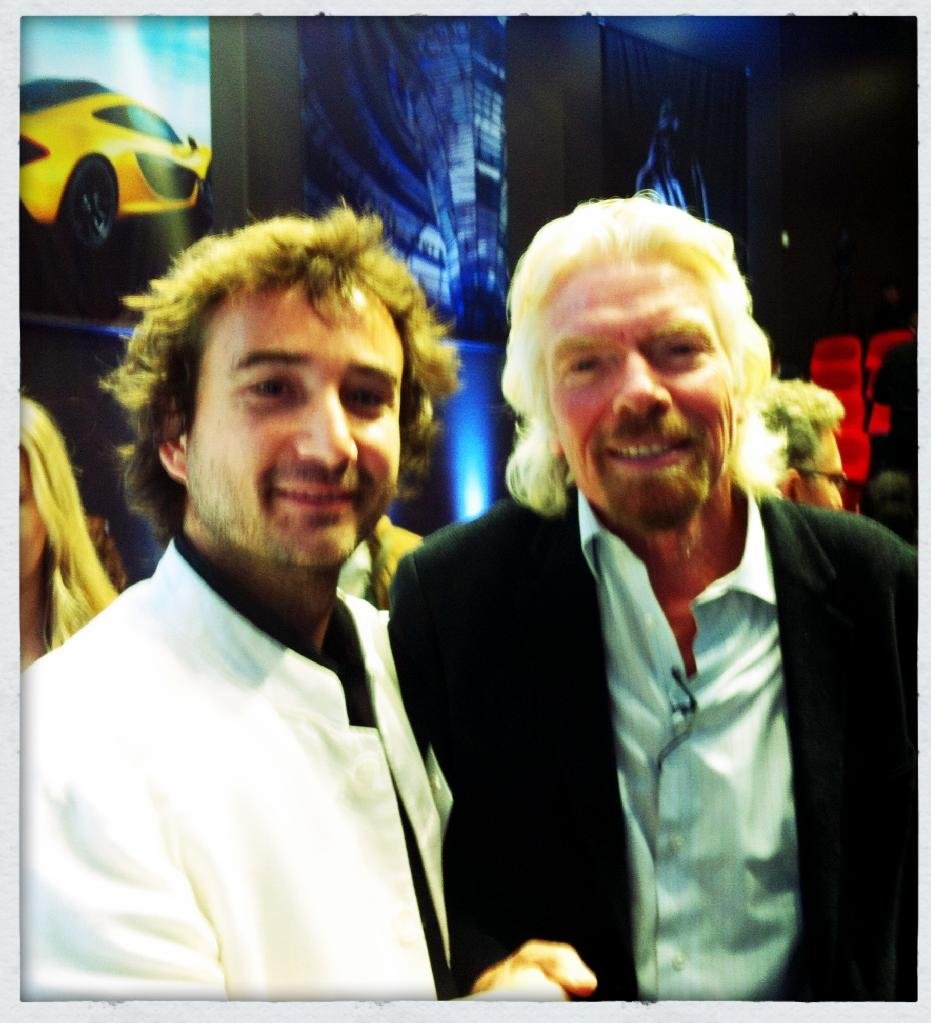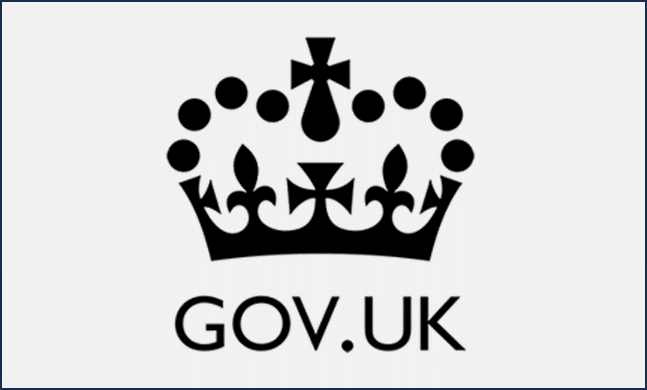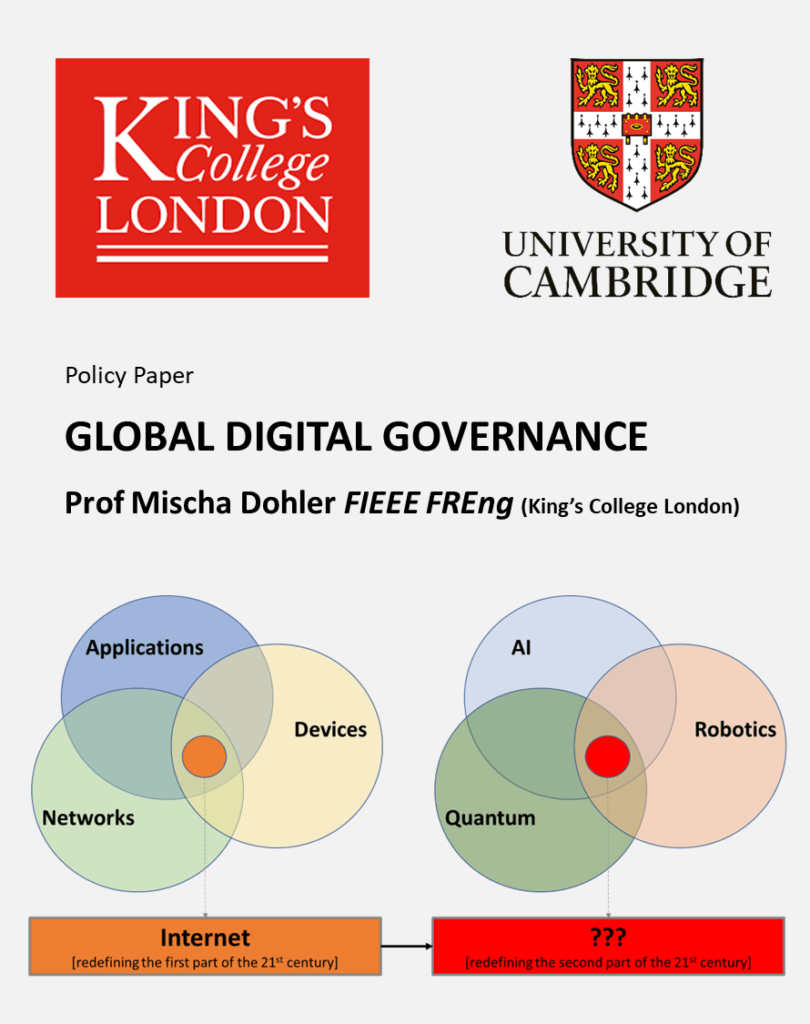
Techno-Policy
The power of policy is that a single word in a legislation or regulation can change the course of an industry. I thus tried very hard over past decades to be part of the conversation with key stakeholders. I was lucky to have worked with the best, such as Sir Richard Branson on his “Carbon War Room” sustainability techno-policy work.
My techno-policy contributions fall into three areas: i) National and International Spectrum and Telecommunications Policy; ii) Digital Governance, Economy, and Future Technologies; and iii) Climate and Environmental Policy in the Digital Economy.
My biggest contributions were in my board and advisory positions to the FCC (US regulator), Ofcom (the UK regulator), and various UK & US government entities – with more details given below. I consistently advocated for a fairer and more equitable wireless and broadband internet, asked for a fairer spectrum allocation, and evangelized many societal usecases in health, transport and the arts.
I have also contributed to the EC, NSC, ITU, the UK National Infrastructure Commission, UK Parliament, and various UK departments. The most memorable engagements, apart from Richard Branson, were with Boris Johnson when he was the Mayor of London – so many stories to tell!
Ofcom

I was appointed to the Ofcom Spectrum Advisory Board in 2016, whilst Professor at King’s College London. Among many contributions, some highlights are:
- Spectrum Sandpit: I have been advocating for a national spectrum testbed which would allow Ofcom to practically test deployment assumptions and for the ecosystem to innovate. This has now happened as of 2024.
- Spectrum Allocation & Regulation: Not surprisingly, I believe (and have quantified proof) that telecom needs more midband spectrum. I have also suggested to have more incentive auctions. I contributed to the net neutrality propositions.
- Emerging Technologies: I am frequently giving a readout to the Ofcom Board on the impact of emerging teach – such as AR/VR, edge-cloud, AI/GenAI, blockchain, quantum – onto networks.
FCC

I have been appointed to the FCC Technical Advisory Committee (TAC) in 2022; first onto the Emerging Technologies TAC and now I am on the AI TAC:
- Emerging Technologies: The TAC discussed technologies, such as AR/VR, positioning, UWB, satellite, etc. We discussed the importance of said technologies to the U.S. consumers and industries.
- Spectrum Allocation: I made explicit contributions to the work area of XR where I quantified the need for extra midband spectrum. Notably, I brought in XR and spectrum experts to give us a detailed readout on the additional uplink capacity needed to support an immersive internet towards the end of the decade.
- Spectrum Tutorial: I gave a tutorial on spectrum challenges in the 5G and 6G era, together with colleagues of the FCC and NTIA, highlighting the need for additional spectrum.
UK Gov

I was frequently asked to advise various entities in the UK government, which was really easy for me as King’s is in walking distance to the UK Parliament:
- Public Street Furniture: Having struggled to put a 5G base station on my roof at King’s, I suggested all public street furniture to be made available to telco operators. I also suggested to auction this nationwide the same was as spectrum is being auctioned.
- Intra-Gov Collaborations: I observed a lot of inefficiencies in government and suggested for Departments to work together to solve many digital divide problems. A “gov barrier busting” team appeared shortly after.
- Smart Procurement 2.0: Having struggled with Worldsensing procurements, I advocated for smart procurements where future capabilities are also taken into account.
_humAInity_
My fascination with humanity – I have always had a deep fascination with how humanity’s perception of time has evolved, shaping our interactions with the world and each other. From the present-focused lives of Hunter-Gatherers, through the Agricultural Revolution’s forward gaze nurtured by the needs of crops, to the Industrial Revolution’s backward glance seeking optimization from the past, each epoch has uniquely contributed to our collective consciousness, and understanding of the Present, Future and Past.
Quo vadis, humanity? – I thus spent some time pondering how society has evolved from a tech point of view: From advances in networks, devices and applications emerged the Internet and thereby redefined society as we know it. In a 2018-2020 policy work with Cambridge University, I argued that three new tech enablers – AI, robotics and accelerators like quantum – are emerging which will create something much bigger. Something which will redefine civilization!
Should we be worried? – I moved to Silicon Valley in the meantime. And my predictions came true, even quicker than I had anticipated. In the policy paper, I argued that regulation ought to happen across all three emerging technologies through an international oversight body. This is not happening at the moment, and therefore yes I am a little worried for humanity.
_humAInity_ – I am however hopeful that a new era will be ushered in: I call it the Era of HumAInity. It is an emerging era with a blend of human ingenuity and AI’s capabilities. My thoughts are increasingly occupied by the challenges and opportunities this coexistence presents. How do we prepare ourselves, our families, and humanity at large for a world where machines are not just tools, but partners? The Era of humAInity demands a reevaluation of our roles, responsibilities, and potentialities in a shared world.

Telco Policy

My work on national and international spectrum and telecommunications policy involves expert advice on 5G/6G, AR/VR, IoT/M2M and many other emerging technologies.
My efforts were to ensure that spectrum allocation and telecommunications regulations are aligned with current and future technological demands across the US, UK, and international bodies like the ITU, BEREC and many engineering policy fora.
Digital Policy

My work here focused on digital governance, future internet technologies, and long-term planning for next-generation networks, while also shaping national and European policies related to the digital economy and innovation.
These efforts guided the transition from 5G to 6G, influenced the national strategy on digital infrastructure, and addressed key issues like net neutrality and cybersecurity.
Green Policy

This work addresses the intersection of digital policy and environmental sustainability, green and energy efficient networks, etc.
Contributions include advising on climate action initiatives within the digital economy, such as Richard Branson’s Carbon War Room, and offering policy input through Cambridge’s Centre for Science and Policy to promote sustainable practices in technology development and deployment.